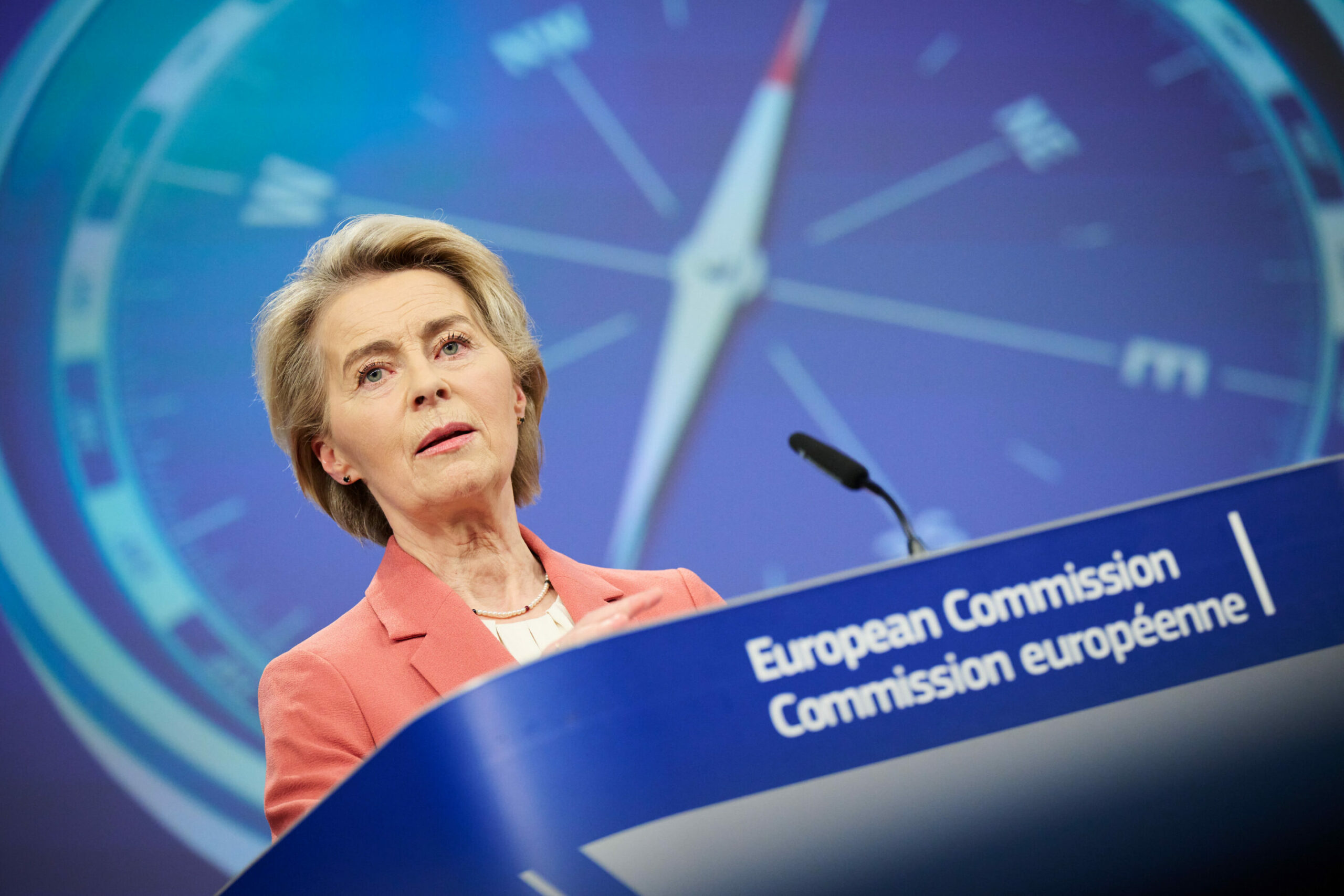The European Commission has unveiled a new action plan to establish Europe as a global leader in artificial intelligence (AI).
The plan is structured around five main pillars: skills, data access, computing power, regulatory simplification, and international cooperation.
Henna Virkkunen, the Commission’s Vice-President for Technological Sovereignty, emphasised that the European Union is not starting from scratch. She noted that the EU boasts the world’s highest number of researchers per capita and ‘thousands of start-ups’ in the AI sector.
To achieve its goal of becoming the ‘AI continent,’ the EU must develop large-scale data and computing infrastructure.
The Commission aims to establish a network of AI factories, with thirteen already being deployed around Europe’s supercomputers. This infrastructure is designed to support start-ups, industry, and researchers in developing AI models and applications.

European Commission President Ursula von der Leyen during a Commission meeting on the EU Competitiveness Compass on 26 February, 2025. Credit: European Commission
The Commission has previously announced its intention to develop AI giga-factories equipped with about 100,000 AI chips, quadrupling the capacity of current factories.
A call for expressions of interest was issued to member states and private partners, with an estimated investment of €20 billion required to establish 45 such sites across Europe.
The plan also seeks to improve access to high-quality data through the creation of “data labs” and promote AI adoption in businesses. The Commission aims to facilitate the international recruitment of highly skilled professionals while developing specific educational programmes.
The final pillar, "regulatory simplification," suggests a potential revision of the recent AI Act, which has not yet come into force. Commissioner Virkkunen underscored the commitment to a risk-based approach at the heart of this legislation, aiming primarily to reduce burdens on businesses and lessen reporting obligations.
The action plan underscores the EU’s ambition to lead the AI revolution responsibly and sustainably.
'EU should protect consumers'
In response to the Commission's launch of its AI Plan and its impact on the AI Act, Frederico Oliveira da Silva, Deputy Head of European Consumer Organisation (BCEU), said that much of the AI Act "does not even apply yet" but the Commission is already signalling that it is "open to cutting" some of its requirements.
"When we know that consumers worry about how AI could be used to harm them, the Commission should instead be trying to reassure consumers that it will protect them from harmful uses of AI," Oliveira da Silva said.
"The best way to do this is to ensure legal stability and focus on the implementation and enforcement of the legislation that has been passed democratically. It is the credibility of the EU to consumers that is at stake here."

